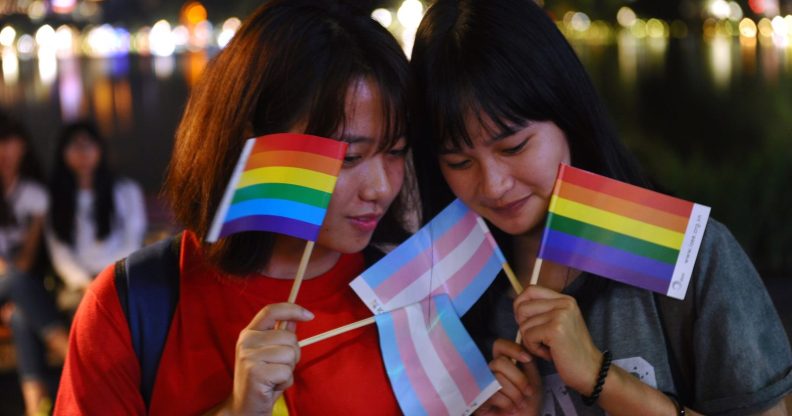Official gender recognition for trans people could be coming to Vietnam — but not yet

(Photo: HOANG DINH NAM/AFP/Getty Images)
Vietnam has begun drafting a law to protect the rights of transgender people by allowing them to change their legal gender.
The potential new law from the Ministry of Health would provide recognition for trans people.would not differentiate based upon whether a trans person has undergone gender recognition surgery or other forms of medical transition.
The law would not differentiate based upon whether a trans person has undergone gender recognition surgery or other forms of medical transition.
Gender reassignment surgery itself is currently illegal in Vietnam.
However, it is common for transgender people travel to neighbouring Thailand for their gender reassignment surgeries.
According to statistics from the Ministry of Health, there are between 270,000 and 300,000 transgender people in Vietnam.

(Photo: OANG DINH NAM/AFP/Getty Images)
LGBT rights in Vietnam have radically changed within the last few years, with the first formal recognition of transgender people passing in the form of an amended civil code in 2015.
The code allowed those who had received gender reassignment surgery to change their legal gender.
In 2015 Vietnam also repealed a ban on same-sex marriage.
Significant issues remain due to the lack of existing laws regarding the recognition of trans people.
This draft law is a significant step forward, however it is expected to be reviewed as late as 2019.
Speaking to Tuoi Tre, Nguyen Huy Quang said on the behalf of the Ministry of Health that he hopes that the draft law will help to amend these issues.
Quang said: “The law will enable a more comprehensive view of the transgender community, which is a particularly vulnerable group of citizens.
“The lack of legal recognition has rendered them ‘invisible’ in the eyes of the law and led them to face tremendous difficulties in life.”
The absence of legal recognition results in transgender people facing difficulties when accessing public services, healthcare, banking and when travelling.
A 2014 Vietnamese study showed significant difficulties for young trans people accessing social services and gaining employment due to a lack of appropriate identification.

